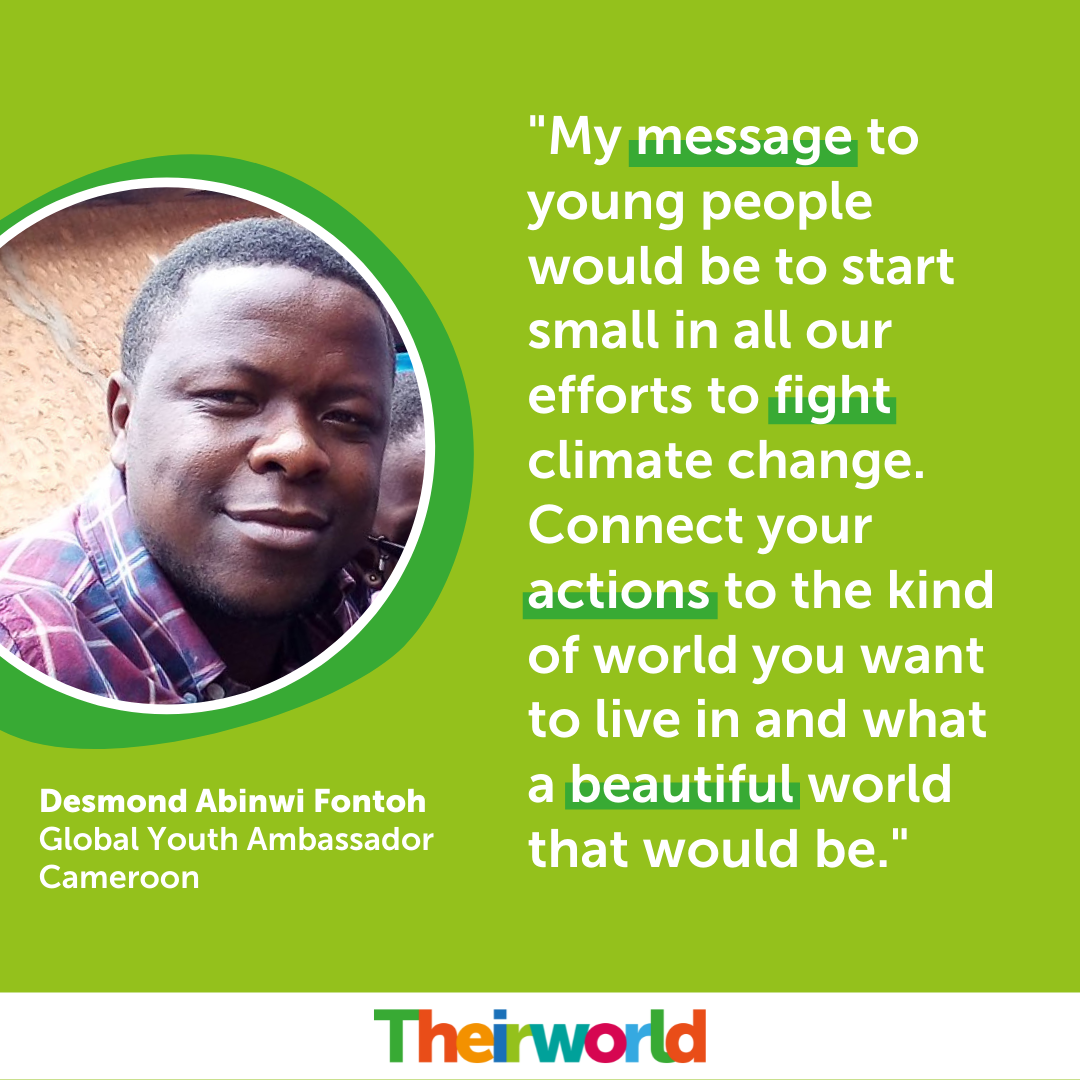
Desmond Abinwi Fontoh – Global Youth Ambassador September 2021

Global Youth Ambassadors
Theirworld's work would not be possible without our network of nearly 1000 Global Youth Ambassadors from around the world. Each month, we highlight the work of one or two of them and the amazing work they do to get every child into school.
As the UN Climate Change Conference (COP26) approaches, youth activists from across the world have come together to think about how we can save our planet and collaborate with one another. In addition to education, GYA Desmond Abinwi Fontoh is also a passionate climate activist, working to promote environmentalism and sustainability in Cameroon.
His organisation, Crusaders for Environmental Protection and Ozone Watch (CEPOW) Cameroon, focuses on adaptation and mitigation strategies to climate change.
Tell us about your experiences at pre-COP in Milan.
It was such an amazing opportunity to connect with young people around the world with all our differences and diversity. To be able to bond and connect with one another and stand together with one voice was an incredible experience. Over 190 delegates attended, from across the world and when you break this into actions – that is 190 different individuals and communities working together to tackle the climate crisis in their country and inspire younger generations
How does climate change impact you and your community?
Climate change is now recognised as an equity issue in African countries because the world’s poorest people, those who contributed least to the atmospheric build-up of greenhouse gases, are the least equipped to deal with the negative impacts of climate change.
In Cameroon, there are increasing concerns of food insecurity, droughts, famine, high prevalence of tropical diseases, and high water and land pollution.The resilience of these communities is already being tested by climate change and they are becoming increasingly vulnerable.
We are starting small in our efforts, and always ensuring to promote environmental education amongst kids as this is the best way to ensure a sustainable and equitable future. So far, we have created four eco-clubs, to connect children to nature as we nurture their mindset towards environmental protection. Inclusive and participatory strategies are the next step in the fight against climate change.
What is your main message to policy makers and governments?
My main message to policy makers and governments would be that nobody is going to live forever. It is crucial for us to think about the legacy we leave and the actions we can take now to help future generations and create a healthy planet for them. Baby steps can lead to a mighty ocean, but leaders need to be doing more. Youth-led projects and grassroot initiatives are incredibly important, but leaders continue to politicise these climate agendas and do not focus on things like climate education, meaningful youth representation and accountability. These are all key, if we wish to tackle the climate crisis together and create a source of hope for tomorrow.
What outcomes would you like to see from COP26?
I believe climate education should be adopted as a priority subject in school curriculums. It is important to educate the minds of children and make them conscious of why we need to protect the environment. Secondly, transformation happens through conscious behaviours, so if we can begin to engage youths and give them the ability to act – this would be amazing. Encouraging youth participation and inclusivity is important, but without power to act or connect with leaders, it can be challenging.
More news

